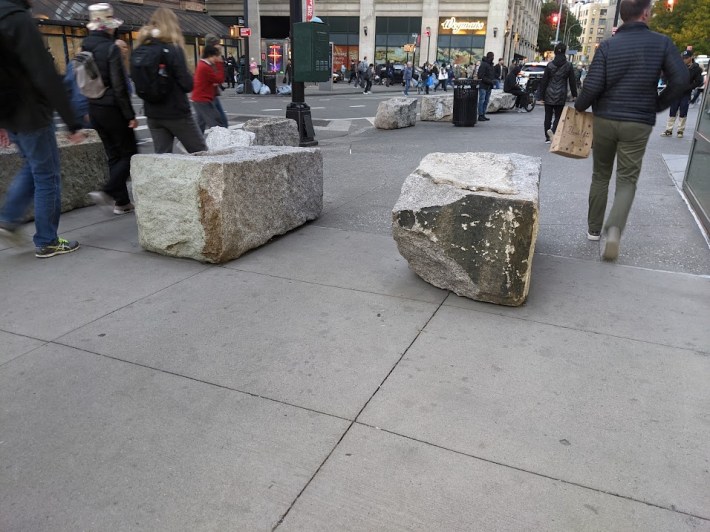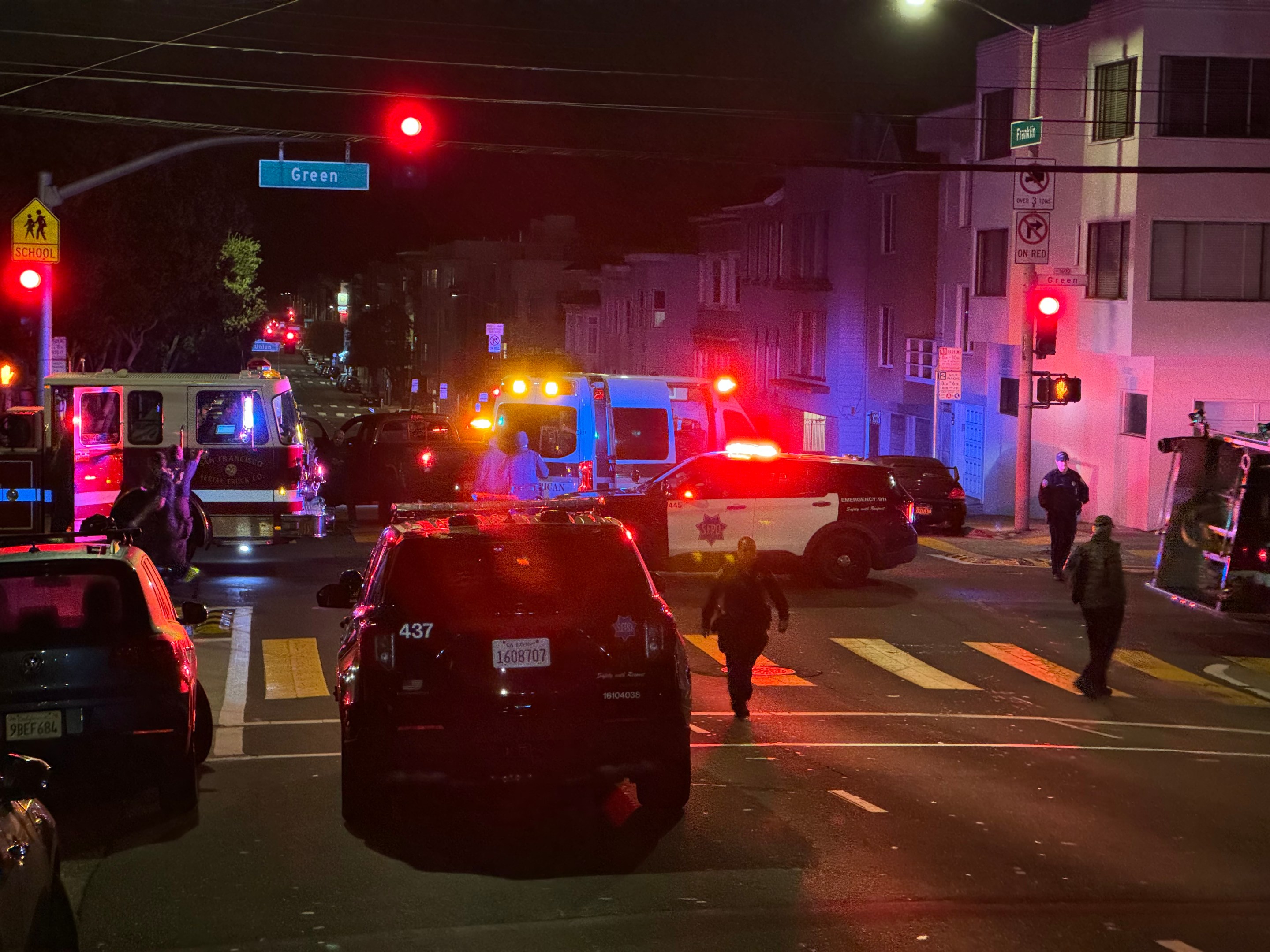With roughly 20 speed cameras now operational and collecting data from locations distributed throughout San Francisco, the results are stark: the cameras caught 31,000 drivers speeding, defined as going at least 11 mph over the limit. Many were going much faster. That was just in April alone, averaging over 1,000 per day.

"This data reflects what we have been feeling: that dangerous speeding is out of control on our streets, and is a daily threat to our safety,” wrote Walk San Francisco’s executive director Jodie Medeiros, in a statement.
More from Walk San Francisco:
At one speed camera location, Fulton (Arguello to 2nd Avenue), almost a quarter of speeding drivers are going more than 15 MPH above the speed limit. That location is right next to Golden Gate Park and where thousands of people cross daily to get to school, the bus, and the park.
At another speed camera location, Geary (Webster to Buchanan), a driver was recorded going 65 MPH in a 30 MPH zone. In April, 4 percent of all warnings went to drivers going 21 MPH or more over the posted speed limit. Those 4 percent are deeply troubling in terms of the safety threat they represent.
42 people were killed in traffic crashes in San Francisco in 2024, the highest number since 2007. More than 500 were severely injured in traffic crashes. The carnage continues this year as well, with eight deaths already. Speeding is a key factor in these tragedies.
“We have a crisis on our streets with dangerous speeding,” added Medeiros. “The City must address speeding not just with speed cameras, but every possible tool.”
On Monday, Walk San Francisco and other advocates delivered a handwritten memo to Mayor Daniel Lurie demanding a new Vision Zero policy. San Francisco's previous Vision Zero commitment expired last year, with no obvious results to show for it.
From Streetsblog's view, Medeiros is absolutely right that speed cameras can only be part of the solution. Assembly Bill 645, which launched the speed camera pilot, only allows for fines; it's inevitable that San Francisco will encounter "super speeders" who ignore the fines and continue driving recklessly.
It also probably worth mentioning the obvious: speed cameras can effectively deter speeding, but they don't physically stop it. That's going to require concrete, on-the-ground infrastructure designed to make it all-but impossible to speed in the first place.

And that's going to require more political will, which seems in short supply.
“Speed kills. But there are many solutions to design and enforce streets to keep speeds down,” said Medeiros. “Most of these are in the City’s hands to use right now.”






